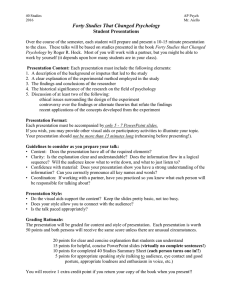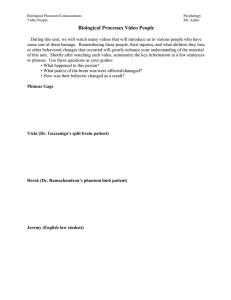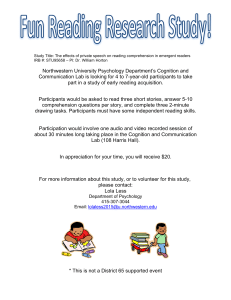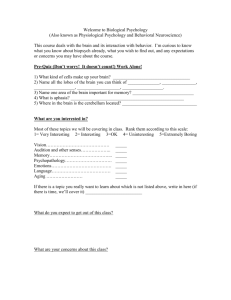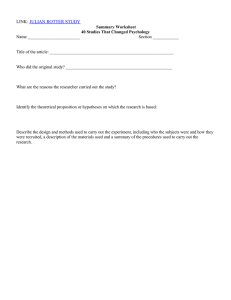Forty Studies That Changed Psychology Student Presentations
advertisement
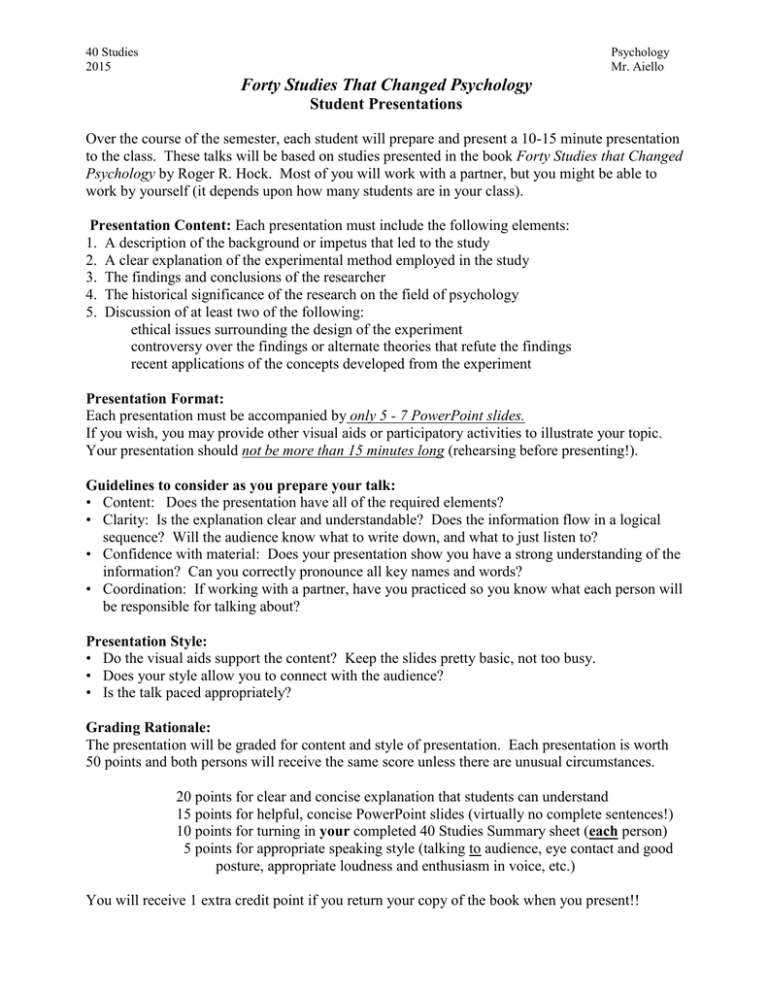
40 Studies 2015 Psychology Mr. Aiello Forty Studies That Changed Psychology Student Presentations Over the course of the semester, each student will prepare and present a 10-15 minute presentation to the class. These talks will be based on studies presented in the book Forty Studies that Changed Psychology by Roger R. Hock. Most of you will work with a partner, but you might be able to work by yourself (it depends upon how many students are in your class). Presentation Content: Each presentation must include the following elements: 1. A description of the background or impetus that led to the study 2. A clear explanation of the experimental method employed in the study 3. The findings and conclusions of the researcher 4. The historical significance of the research on the field of psychology 5. Discussion of at least two of the following: ethical issues surrounding the design of the experiment controversy over the findings or alternate theories that refute the findings recent applications of the concepts developed from the experiment Presentation Format: Each presentation must be accompanied by only 5 - 7 PowerPoint slides. If you wish, you may provide other visual aids or participatory activities to illustrate your topic. Your presentation should not be more than 15 minutes long (rehearsing before presenting!). Guidelines to consider as you prepare your talk: • Content: Does the presentation have all of the required elements? • Clarity: Is the explanation clear and understandable? Does the information flow in a logical sequence? Will the audience know what to write down, and what to just listen to? • Confidence with material: Does your presentation show you have a strong understanding of the information? Can you correctly pronounce all key names and words? • Coordination: If working with a partner, have you practiced so you know what each person will be responsible for talking about? Presentation Style: • Do the visual aids support the content? Keep the slides pretty basic, not too busy. • Does your style allow you to connect with the audience? • Is the talk paced appropriately? Grading Rationale: The presentation will be graded for content and style of presentation. Each presentation is worth 50 points and both persons will receive the same score unless there are unusual circumstances. 20 points for clear and concise explanation that students can understand 15 points for helpful, concise PowerPoint slides (virtually no complete sentences!) 10 points for turning in your completed 40 Studies Summary sheet (each person) 5 points for appropriate speaking style (talking to audience, eye contact and good posture, appropriate loudness and enthusiasm in voice, etc.) You will receive 1 extra credit point if you return your copy of the book when you present!! 40 Studies 2015 Psychology Mr. Aiello There are an additional 5 bonus points that can be earned; it is also possible to lose points for deficiencies in the presentation. Bonus Points: You can earn bonus points for the following: 1. Using appropriate and relevant graphics, movie clips, charts and photos 2. A creative element that expands beyond the scope of the article in the book. This could be: biographical information or other examples illustrating the work of this researcher presentation of further research you've done related to the subject an experimental test design you create based on the work of this researcher a hands-on demonstration of the concept a discussion of how this theory relates to Clayton High School students OR… Loss of points: You could lose points for the following: 1. Spelling, punctuation and grammar errors that distract the viewer 2. A presentation that is overly long (too much text on each slide, too much extraneous detail in the explanation) [part of your work on this project is to distill the information into the most relevant parts and present it in an organized way] 3. A presentation that is read to the audience (either reading us the PowerPoint or reading us your notes – of course occasional reading and/or referral to your notes is entirely acceptable) 4. Presentation of wrong or confusing information, or concepts that are not presented in an orderly and understandable way 5. Presentation that is not ready to go on the day it is assigned (automatic 10 point deduction). 6. Not getting your completed PowerPoint to Mr. Aiello by 8:00 pm the evening before you are scheduled to present! (automatic 10 point deduction) davidaiello@claytonschools.net Presentation Titles: 1. One Brain or Two? Probable Date of Presentation (Biopsych) Aiello demonstrates - 9/16 2. More Experience = Bigger Brain? (Biopsych) 3. To Sleep, No Doubt to Dream (Consciousness) 4. Unromancing the Dream (Consciousness) 5. Acting as if You are Hypnotized (Consciousness) 6. What You See is What You’ve Learned (Sensation & Perception) 7. Little Emotional Albert (Conditioning & Cognition) 8. Knock Wood! (Conditioning & Cognition) 9. Maps in Your Mind (Conditioning & Cognition) 10. See Aggression. . . Do Aggression! (Conditioning & Cognition) 11. Thanks for the Memories (Conditioning & Cognition) 12. I Can See It All Over Your Face (Motivation & Emotion) 13. Picture This! (Motivation & Emotion)
